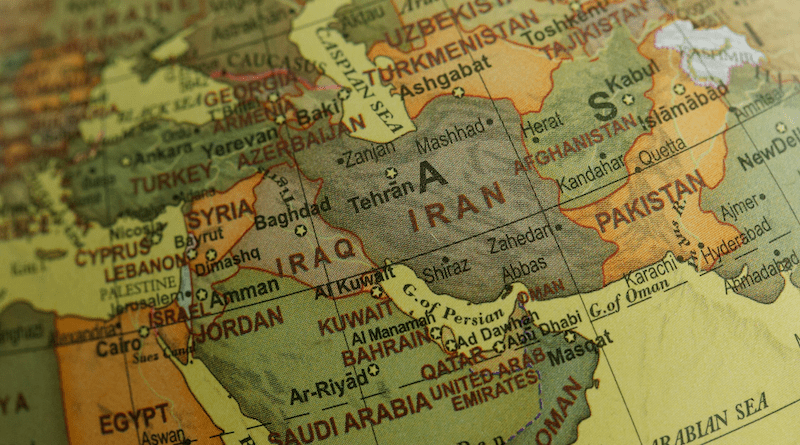India-Qatar Relations Amidst Espionage Charges Against Former Indian Navy Officers – OpEd
By Shaimin Raja
The arrest of eight former Indian naval officers in Qatar on espionage charges has not only brought to light a complex web of diplomatic intricacies but has also unveiled deeper layers of geopolitical dynamics and intelligence operations in the Middle East. This incident, which involves allegations of spying on Qatar’s secret submarine program for Israel, raises questions about the relationships between India, Qatar, Israel, and how these actions might influence the broader balance of power in the region.
The initial detention in August 2022 of the former naval officers in Qatar sparked curiosity as the exact charges were not immediately disclosed, leaving room for speculation. However, as the Qatari authorities later revealed that the officers were accused of spying on Qatar’s submarine program for Israel, the case took an unexpected twist. This revelation sent shockwaves not only through the region but also through India, as it implicated two countries that share intricate diplomatic and security ties with the Indian government.
The intertwining of India, Israel, and Qatar in this scenario is particularly noteworthy. India and Israel have maintained a strategic partnership spanning various sectors, including defense, technology, and intelligence sharing. This naturally raises questions about the motivations and involvement of the arrested officers – whether they were acting autonomously or on behalf of their respective intelligence agencies. Given India’s history of proactive pursuit of strategic interests and its close relationship with Israel, it is plausible to speculate that the Indian government might have played a role in shaping the officers’ activities.
At the core of this incident lies the broader geopolitical context of the Middle East. Qatar’s quest to acquire a version of the advanced U212 submarines, capable of operating discreetly in the Persian Gulf, signifies its ambition to emerge as a significant player in regional security affairs. This move challenges the established military balance in the region, particularly concerning Israel’s military supremacy. Israel’s apprehension about Qatar’s potential naval capabilities becoming a threat highlights the intricacies of power dynamics and security concerns that define the region. The emergence of espionage allegations related to Qatar’s submarine program also shines a light on the complex intelligence landscape operating in the Middle East. The apparent cooperation between India and Israel underscores the depth of their strategic collaboration, which extends beyond traditional diplomatic protocols. While the specifics of the officers’ involvement remain shrouded, the partnership between these nations implies a level of intelligence-sharing that is both sophisticated and far-reaching.
The incident also places India’s foreign policy in a delicate position. With strong ties to both Qatar and Israel, India faces the challenging task of navigating these relationships while safeguarding its own national interests. The Indian government’s proactive efforts to secure the release of the detained officers demonstrate the importance of managing the aftermath of this incident. Striking the right balance involves maintaining cooperation with both Qatar and Israel while mitigating any potential diplomatic fallout. Furthermore, the case highlights the evolving role of private companies in sensitive defense projects. The fact that the arrested Indian nationals were employed by Dahra Global Technologies and Consulting Services, a private firm engaged in providing services to Qatar’s defense sector, raises questions about the oversight and security protocols associated with such collaborations. Qatar’s swift actions, including the shutdown of Dahra Global and the request for Indian employees to resign, underscore the country’s commitment to addressing potential security vulnerabilities.
The incident also raises broader questions about the ethical and strategic considerations of intelligence-gathering activities. While intelligence agencies operate covertly to ensure national security, incidents like this underscore the ethical dimensions associated with espionage. The secrecy that shrouds these operations can inadvertently lead to international incidents that strain diplomatic relations and potentially reshape the geopolitical landscape. Looking ahead, the diplomatic fallout from this incident remains uncertain. While both India and Qatar have enjoyed cooperative relations in various sectors, including energy and defense, the alleged involvement of Indian nationals in espionage for a regional ally could strain these ties. Qatar’s response, influenced by its commitment to protecting its security and sovereignty, could potentially redefine the nature of its engagement with India in the long term.
In conclusion, the arrest and subsequent espionage charges against the former Indian naval officers in Qatar unveils a tapestry of intricate geopolitical dynamics, intelligence operations, and diplomatic maneuvering in the Middle East. The intertwined relationships between India, Qatar, and Israel underscore the complex power struggles and interests at play. As more details emerge and the implications unfold, this case will continue to resonate through the realms of diplomacy, security, and global relations, potentially reshaping the geopolitical landscape of the region in ways that are both anticipated and unforeseen.

